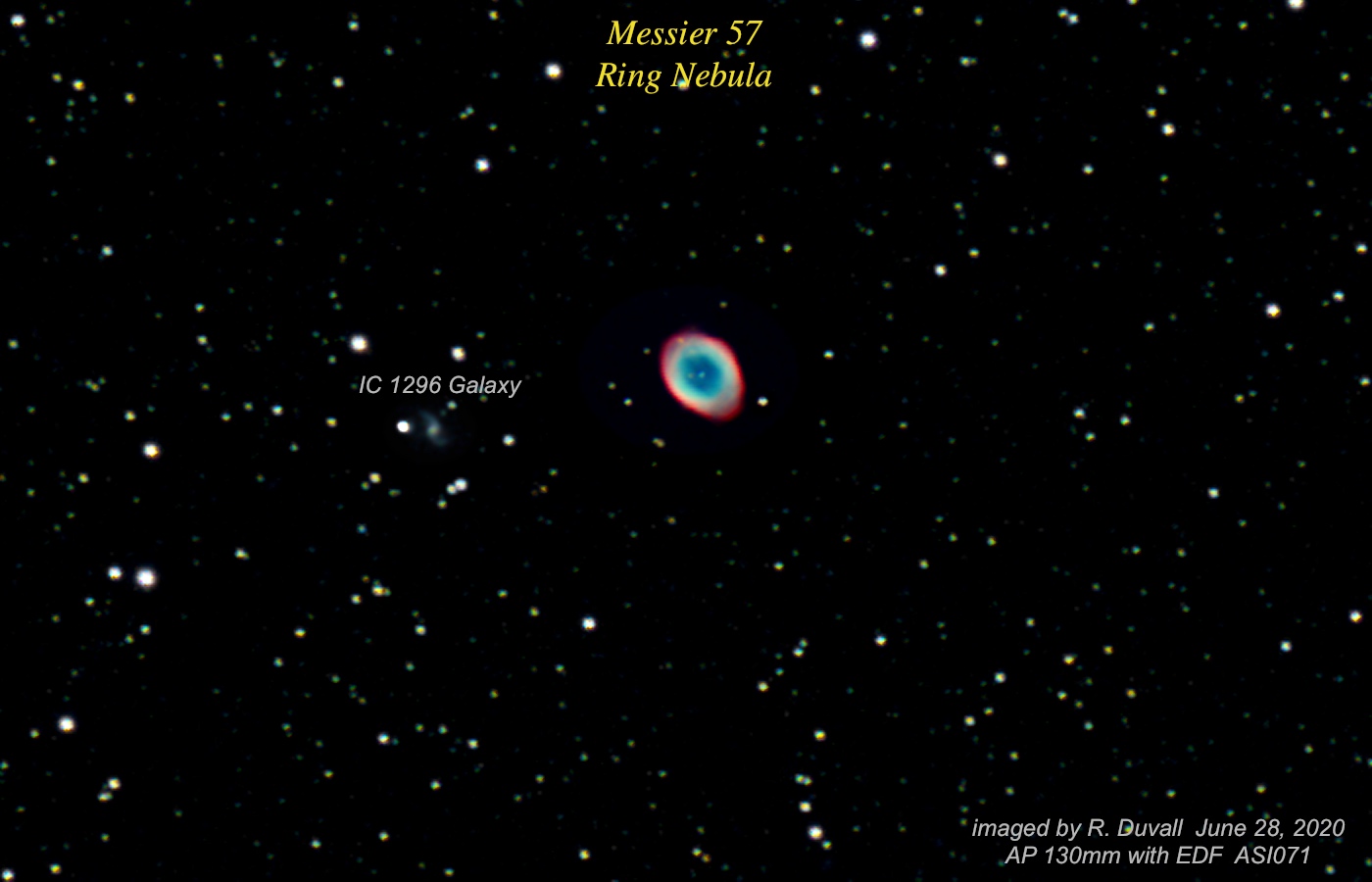Previous |
Home |
Next
Click on the image to enlarge

Messier 57
| Name: |
Messier 57 |
| Nickname: |
Ring Nebula |
| Object Type: |
Planetary Nebula |
| Constellation: |
Lyra |
| Magnitude: |
14.8 |
| Object Size: |
1.5 x 1 arc-min |
| Comment: |
aka NGC 6720 |
|
|
. |
. |
| Date Taken: |
2020-06-28 |
| Camera |
ZWO ASI071 (?? arc-sec/pixel) |
| Exposure: |
16 min |
| Telescope (Optics): |
AstroPhyics 155mm (6.1") EDF f/7 |
| Focal Length (FL): |
1085mm |
| Field of View(FOV): |
TBD |
| Mount: |
MI-250 Mount, ZWO ASI290 Off Axis Guider |
| Quick Notes: |
No Barlow, used SharpCap and Photoshop. Bright, seen unaided eye, low on horizon (Dreyer translation) |
| Location: |
Chiefland Astronomy Village, Florida |
| More information: |
Digging Deeper |
|
Object Information:
Messier 57 (M57) The Ring Nebula (a Planetary Nebula)
This formed when a shell of ionized gas was expelled into space by a star in the last stages of its life before becoming a white dwarf.
The nebula cannot be resolved in small binoculars and is best seen in 8-inch and larger telescopes.
IC 1296 -- Low Surface Brightness Galaxy
IC 1296 is a barred-spiral galaxy in the constellation Lyra. Just 4' to the northwest of the famous planetary nebula M57 Ring Nebula.
Whereas M57 is in our galaxy (the Milky Way), at 2,300 light years away, IC 1296 is much farther away at an estimated distance of 220 Million light years (NED data).
Its core should be visible with 10"-12" and larger aperture visually. Visually seeing its spiral arms requires clear, dark, and steady skies.
My camera captured this easily, but without much detail.
I wasn't expecting this, so I will have to revisit this with a bigger telescope (both bigger aperture and longer focal length)!
Technical Depths:
Simbad IC1296
|
|
| Copyright © 2020
AstroHawk Inc. All rights reserved. Unauthorized
use prohibited.
|
|
